Schools with a Brilliant Health Sciences Faculty
MHA Search
For the latest academic year, we have 170 schools in our MHAOnline.com database and those that advertise with us are labeled “sponsor”. When you click on a sponsoring school or program, or fill out a form to request information from a sponsoring school, we may earn a commission. View our advertising disclosure for more details.
Students with a penchant for health systems, the medical sciences, and healthcare ins-and-outs might consider pursuing a degree in the health sciences. Coursework may cover nutrition, healthcare, health administration, mathematics, biology, anatomy, sociology, chemistry, epidemiology, healthcare management, and more. More targeted and discipline-specific courses include subjects such as ethical issues in healthcare, human physiology, basic pharmacology, and health law and regulation, among others.
As a collective of disciplines, the health sciences apply scientific research to aid in the more efficient operation of health science facilities, labs, or research centers. Health sciences students are highly-trained professionals that nearly always specialize in a complex subfield. In general, the health sciences can be divided into two components: research and application. One side studies health science topics to deepen medicine’s collective understanding. The other side uses that deepened understanding to improve health and hopefully cure diseases.
This guide to three schools with a brilliant health sciences faculty spotlights 14 experts in the field, including their respective disciplines, achievements, research, teaching, and contributions to the field of health sciences.
Boston University – College of Health and Rehabilitation Sciences
Founded in 1839 as a private research university in Boston, Massachusetts, BU boasts an exceptional health sciences faculty and a number of notable facilities, including the College of Health and Rehabilitation Sciences. BU also runs Sargent College, the hub of the health sciences undergraduate program, which culminates in a unique practicum designed to test the real-world skills of health sciences students by having them work in a public health department or medical clinic. Examples of some of the courses a student might encounter include germs and genes, international health topics, applied health sciences, epidemiology, genomics in public health, health literacy, and global maternal and child health.
-
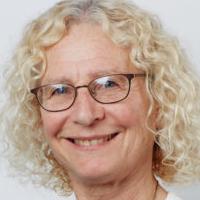
Dr. Linda Bandini is a clinical professor in the College of Health and Rehabilitation Sciences at Boston University. She researches and teaches childhood obesity, energy expenditure in children, health promotion, and dietary intake and physical activity in children with developmental disabilities.
Dr. Bandini holds a BS in zoology from the University of Massachusetts, an MS in interdisciplinary science from the Massachusetts Institute of Technology, and a PhD in nutritional biochemistry and metabolism, also from MIT. She teaches graduate-level courses in nutrition and disease prevention and advanced clinical nutrition. She is also a registered dietician (RD).
-
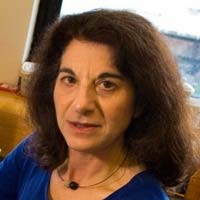
Dr. Helen Barbas is a professor of human physiology in the College of Health and Rehabilitation Sciences at Boston University, where she works in the Neural Systems Laboratory. She researches and teaches patterns of neural interactions, computational neuroscience, organization of the prefrontal cortex, evolution of the neocortex, and the neural basis of cognitive-emotional interactions.
Dr. Barbas holds a BA in liberal arts from Kean College, an MS in psychobiology from Kansas State University, and a PhD in physiology and neurophysiology from McGill University in Montreal. She completed her postdoctoral work in neuroanatomy at the Harvard Medical School, where she is also a lecturer in neurology. She is also a professor in the Department of Anatomy and Neurobiology at the Boston University School of Medicine.
-

Dr. Joan Blake is a clinical professor in the Department of Health Sciences at Boston University, in addition to serving as the director of the dietetic internship program. She researches and lectures on the topics of cardiovascular disease, adult obesity and weight management, hypertension, wellness, food safety, lifestyle changes, and nutrition communications.
Dr. Blake teaches courses in community nutrition, an introduction to nutrition, and the theory and practice of nutrition counseling. She holds a BS in food and nutrition from Montclair State University, an MS in clinical nutrition from Boston University, and an EdD from the Boston University School of Education.
-
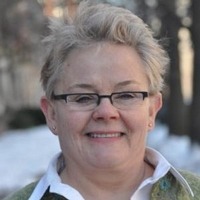
Dr. Susan Foster is professor of international health at the Boston University School of Public Health, and is closely affiliated with the College of Health and Rehabilitation Sciences. She researches and teaches health policy, health economics, and operational research, as well as the economics of infectious diseases (particularly HIV/AIDS, tuberculosis, and malaria) and pharmaceutical policy.
Dr. Foster holds a BA in English literature from the University of Colorado at Boulder, an MA in international affairs and African studies from Ohio University, and a PhD in health economics from the London School of Hygiene and Tropical Medicine. Notably, she was the public policy and education director for the Alliance for the Prudent Use of Antibiotics from 2006 to 2012.
-
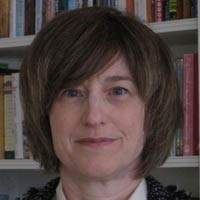
Dr. Susan Kandarian is a professor in the Department of Health Sciences at Boston University. She researches the pathways that help skeletal muscle atrophy heal, using both molecular and cellular approaches. Her other research and teaching interests include the identification of ligands, signaling pathways, transcription factors, and induction genes that are affected by cancer.
Dr. Kandarian holds a BA from Albion College in biology, and an MS and PhD in health sciences from the University of Michigan, Ann Arbor.
California State University, Fullerton – College of Health & Human Development
As one of the largest schools in California’s state university system, Fullerton offers a flexible, cutting-edge health sciences bachelor’s degree program with three unique specialization paths: health promotion and disease prevention, global health, and environmental and occupational health and safety. In addition to a strong foundation in standard health sciences topics, more advanced courses are offered such as worksite health promotion, interdisciplinary approaches to HIV/AIDS, multicultural health, and environmental toxicology and health, among others. Students can also pursue one of two specialized degree options: certification as a health education specialist (CHES) or registration as an environmental health specialist (REHS).
-
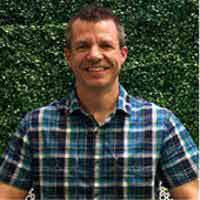
Dr. Anthony DiStefano is a professor in the Department of Public Health at California State University, Fullerton. He researches, lectures, and advises on the topics of mental health, violence, HIV, syndemics, global health, and medical ethnography. He teaches courses in qualitative research and field methods in health, transdisciplinary perspectives on HIV/AIDS, health science planning, research, and evaluation, and epidemiology.
Dr. DiStefano holds a BA in Japanese, a master’s of public health in community health services, and a PhD in public health—all from UCLA. Dr. DiStefano utilizes a social science of medicine approach that relies on ethnography.
-
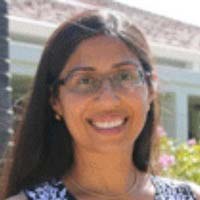
Dr. Jasmeet Gill is an associate professor in the College of Health and Human Development at California State University, Fullerton, where she researches and lectures on the topics of epidemiology, population-based cancer research, research methods, and early predictors of breastfeeding. She also teaches courses on the principles of epidemiology, epidemiology, chronic disease epidemiology, and statistics for health science.
Dr. Gill holds a BS in biology from UC Riverside and a PhD in epidemiology from UCLA.
-
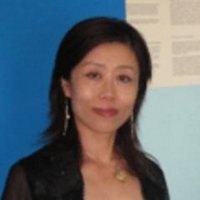
Dr. Weiss is a professor and co-director of the Center for the Promotion of Healthy Lifestyles and Disease Prevention at California State University, Fullerton. Dr. Weiss’s research focuses on the application of cognitive and behavioral science in health promotion and disease prevention. She has been the principal investigator for numerous projects funded by NIH, CDC, and DHHS. She teaches courses on consumer health, complementary and alternative medicines, the determinants of health behavior, and program planning and evaluation.
Dr. Weiss holds a PhD in clinical health psychology from the California School of Professional Psychology and completed post-doctoral work in preventive medicine from the University of Southern California.
-
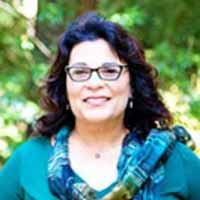
Dr. Michele Wood is a professor in the College of Health and Human Development at California State University, Fullerton, as well as the chair of the Department of Public Health. She researches and lectures on public health education, risk communication for disasters, and program evaluation. She advises and consults in the areas of disasters, HIV/AIDS, substance use, gerontology, and high-risk populations. She teaches statistics and measurements in health science, program design, statistical methods, research methods in health science, and drugs and society.
Dr. Wood holds a BA in psychology from UC Irvine, an MS in community psychology from California State University, and a PhD in public health from UCLA.
-
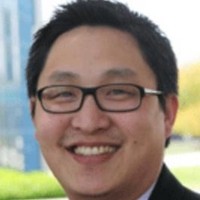
Dr. Joshua Yang is an associate professor in the College of Health and Human Development at California State University, Fullerton, where he researches and lectures on tobacco control, the global governance of non-communicable diseases, international institutions, and structural interventions, as well as power, discourse, and ideology. He teaches courses in health policy, the determinants of health behavior, international health, global health, health science planning, and advanced studies in health promotion and disease prevention.
Dr. Yang holds a BS in physiological sciences, an MPH, and a PhD in public health—all from UCLA.
Drake University, College of Pharmacy & Health Sciences
Founded in 1881 as an intimate private university in Des Moines, Iowa, Drake University offers a first-rate BS degree for students of the health sciences, where specializations in either clinical and applied sciences or health services management are available. Examples of some of the courses a student might take include health coaching, the social determinants of health, international health topics, applied science, and health literacy.
As an institution that regularly partners with other medical schools to offer the best possible education, Drake University has collaborated with the Mercy College of Health Sciences to help students gain an additional BS in nursing or a medical laboratory sciences certificate.
-
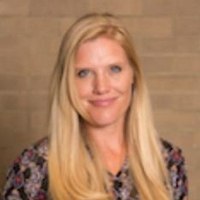
Dr. Cassity Gutierrez is an associate professor and chair in the College of Pharmacy and Health Sciences at Drake University, where she researches and lectures on the topics of epidemiology, college connections and career pathways in health sciences, culture care, and health literacy. She is also the director of pre-professional programs.
Dr. Gutierrez holds a PhD in health studies from the Texas Woman’s University, an MS in secondary education from Texas A&M, Corpus Christi, and a BS in community health education from Iowa State University.
-
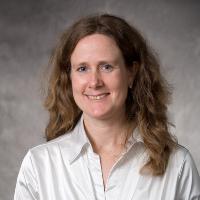
Dr. Sarah Grady is an associate professor of pharmacy practice in the College of Pharmacy and Health Sciences at Drake University. She holds a doctorate of pharmacy from the University of Illinois at Chicago.
Dr. Grady was named “mentor of the year” by the Department of Clinical Sciences within the college, in addition to “teacher of the year” on three separate occasions. She is a member of the American Association of Colleges of Pharmacy, the Substance Abuse Education and Assistance SIG, the American College of Clinical Pharmacy, and the College of Psychiatric and Neurologic Pharmacists.
-
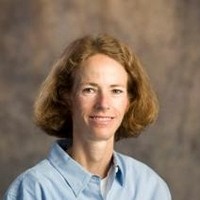
Dr. Kim Huey is professor of health sciences in the College of Pharmacy and Health Sciences at Drake University, where she does biomedical research on skeletal muscle physiology and studies applied human exercise physiology. She currently teaches human physiology, medical physiology, the medical physiology lab, skeletal muscle structure and function, and exercise testing and prescription.
Dr. Huey holds a BS in exercise physiology from Seattle Pacific University, an MS in exercise physiology from the University of Arizona, and a PhD in biomedical sciences from UC San Diego.
-
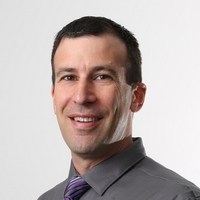
Dr. Nathan Newman is an associate professor of athletic training in the College of Pharmacy and Health Sciences at Drake University, where he is also the director of the master’s in athletic training program. He teaches athletic training, human physiology, and health science.
Dr. Newman holds a BS in exercise science from the University of Northern Iowa, an MS in kinesiology from Western Illinois University, and an EdD in allied health, recreation, and community service from the University of Northern Iowa.
Methodology
Schools that meet our criteria for designation as one with a brilliant health sciences program must:
- Offer comprehensive health sciences programs that prioritize undergraduate and graduate learning
- Assign cutting-edge curriculum that integrates research from contemporary scholarship
- Boast a demonstrated history of student satisfaction in academics, facilities, and curricula
- Retain a staff of credentialed and peer-reviewed healthcare experts
To decide who to include in our grouping of top-achieving professors in the health sciences, we look at the following criteria:
- University Affiliation: Health sciences faculty on this list must currently be employed in instruction or research at an accredited university or college.
- Professional Commitment: Together with whatever research, teaching, or leadership obligations these health sciences professors have, some have risen to positions like faculty dean or program director or have taken advisory positions on the boards of public firms.
- Peer Recognition: In their dedication to the health sciences, faculty who have set themselves apart may have received special recognition for their published work, grants or allotments for research or funding, or excellence in teaching awards.
- Publication: In addition to having been featured extensively in peer-reviewed journals, many of the professionals on our list show publication expertise in other outlets or have been featured in various media.

